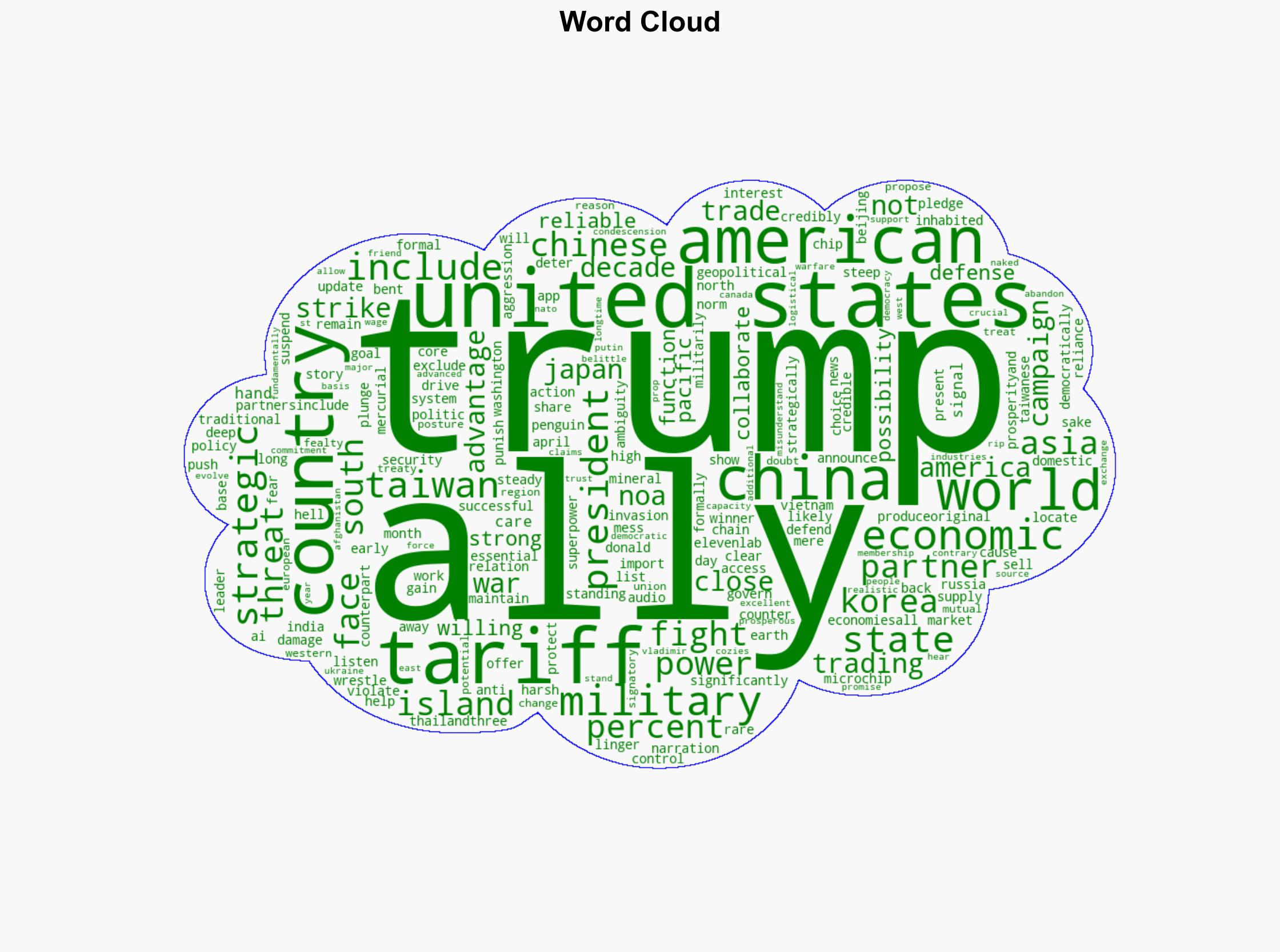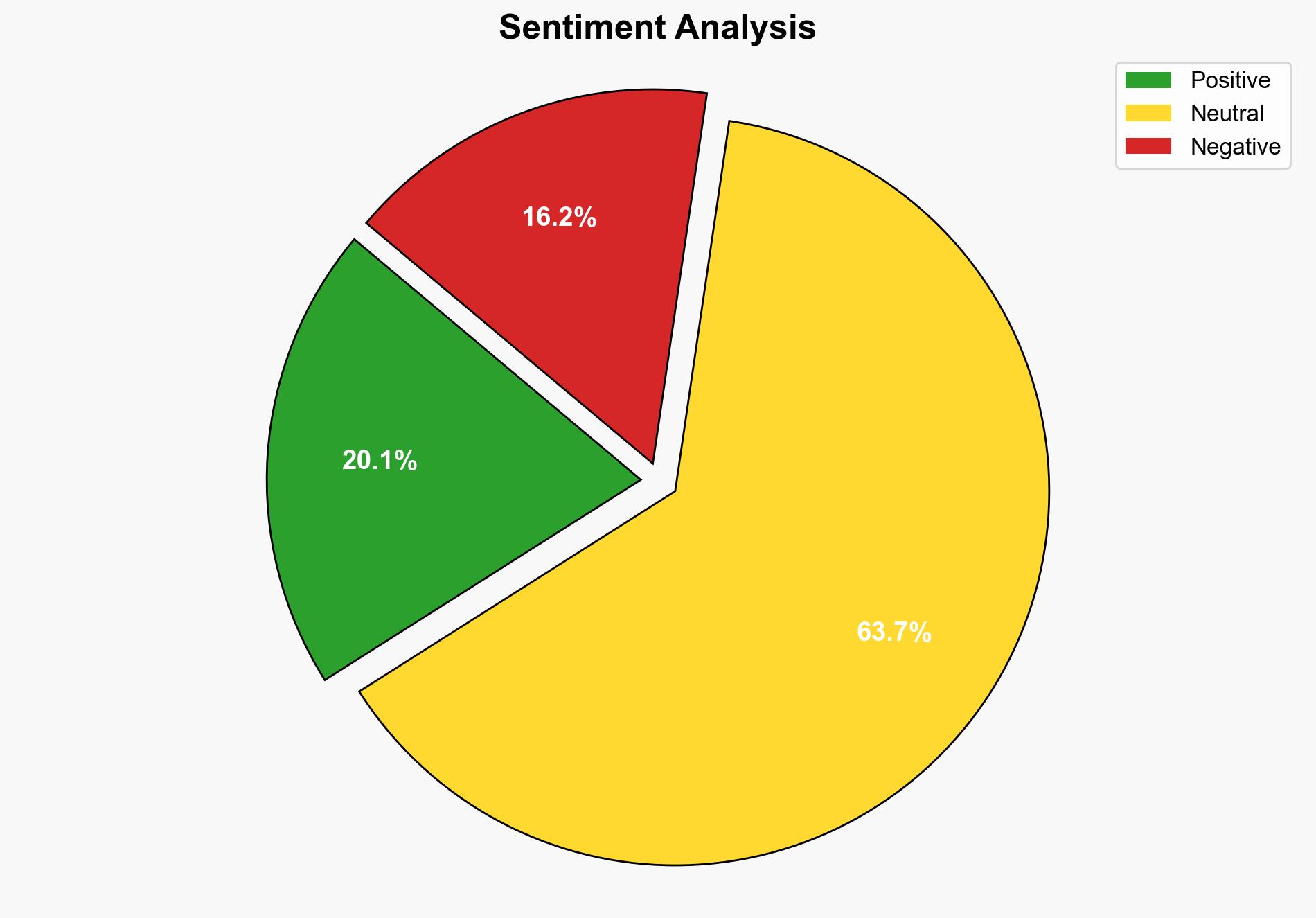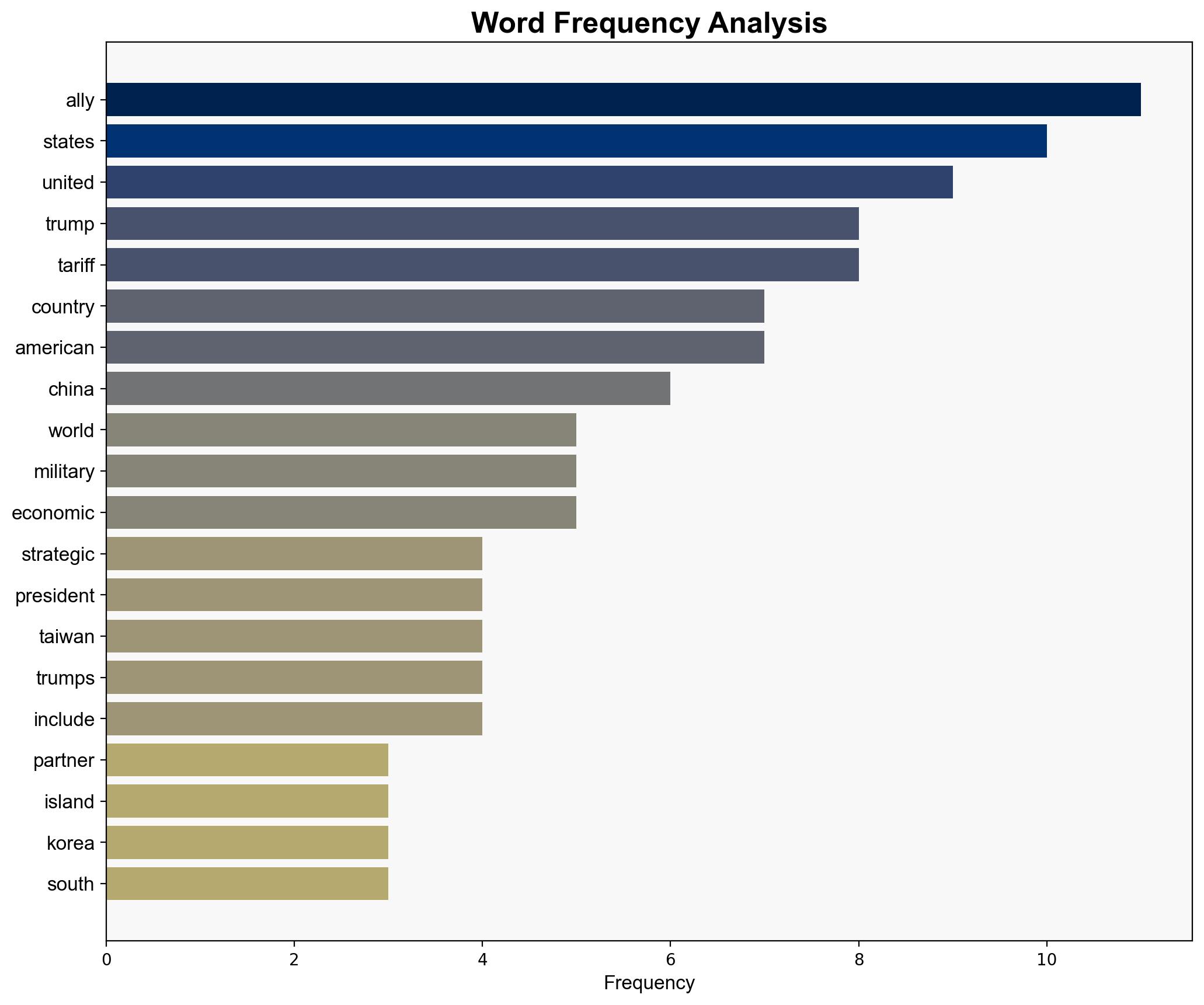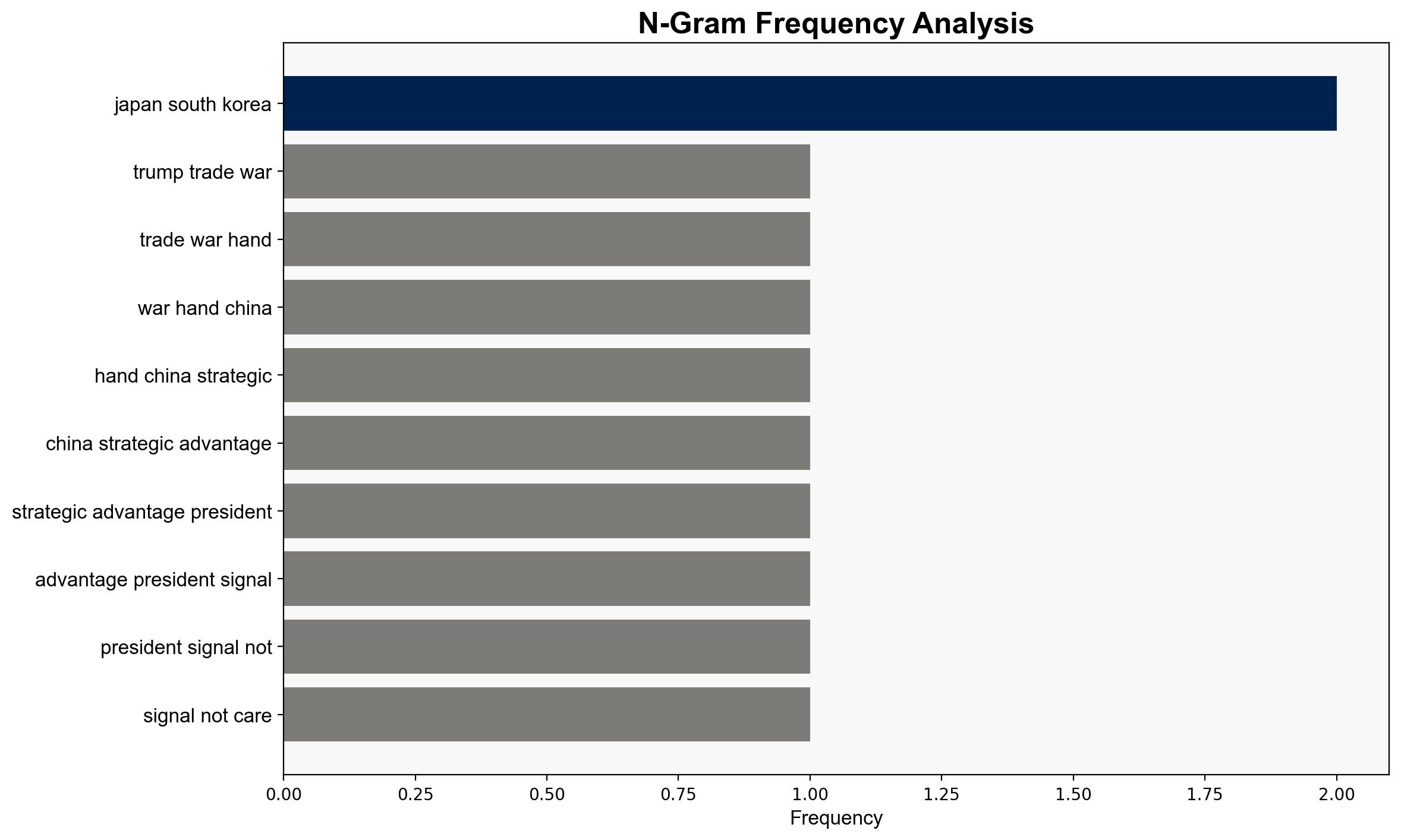Trumps Trade War Handed China a Strategic Advantage – The Atlantic
Published on: 2025-04-14
Intelligence Report: Trumps Trade War Handed China a Strategic Advantage – The Atlantic
1. BLUF (Bottom Line Up Front)
The recent trade policies initiated by Donald Trump have inadvertently strengthened China’s geopolitical position. The imposition of tariffs on key U.S. allies and trading partners has strained international relations, potentially driving these countries closer to China. This shift poses significant risks to U.S. economic interests and regional stability in Asia. Immediate strategic adjustments are recommended to mitigate these risks and restore confidence among allies.
2. Detailed Analysis
The following structured analytic techniques have been applied for this analysis:
General Analysis
The imposition of tariffs by Donald Trump on countries such as Japan, South Korea, Thailand, India, Vietnam, and Taiwan has led to economic and diplomatic tensions. The exclusion of Russia and North Korea from these tariffs raises questions about strategic priorities. The tariffs have been perceived as punitive measures against allies, undermining long-standing international norms and alliances. This has created an opportunity for China to position itself as a stable and reliable economic partner, offering access to critical resources and supply chains.
3. Implications and Strategic Risks
The strategic risks include a potential realignment of U.S. allies towards China, weakening U.S. influence in the Asia-Pacific region. The economic impact on U.S. industries reliant on imports from affected countries could lead to increased costs and supply chain disruptions. Additionally, the perceived unreliability of the U.S. as a partner may embolden Chinese ambitions in Taiwan and other contested areas, increasing regional instability.
4. Recommendations and Outlook
Recommendations:
- Engage in diplomatic efforts to reassure allies and rebuild trust, emphasizing mutual benefits and security commitments.
- Consider revising tariff policies to align with strategic interests and support economic stability.
- Enhance collaboration with allies on technological advancements and supply chain resilience to counterbalance China’s influence.
Outlook:
In the best-case scenario, diplomatic efforts successfully restore alliances, and economic policies are adjusted to foster stability. In the worst-case scenario, continued alienation of allies leads to a strategic pivot towards China, diminishing U.S. influence. The most likely outcome involves a mixed response, with some allies seeking closer ties with China while others remain cautiously aligned with the U.S.
5. Key Individuals and Entities
The report mentions significant individuals such as Donald Trump and geopolitical entities including China, Japan, South Korea, Thailand, India, Vietnam, and Taiwan. These actors play crucial roles in the unfolding geopolitical dynamics and require close monitoring.




